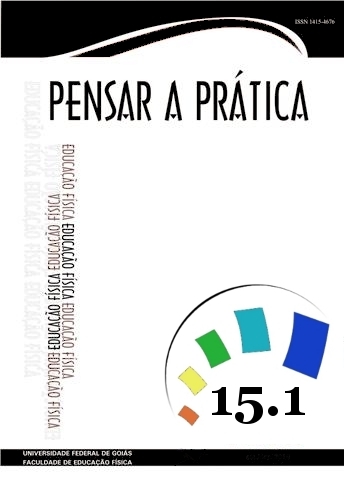FADO DANCED IN BRAZIL: CULTURAL PASSER
DOI:
https://doi.org/10.5216/rpp.v15i1.18016Abstract
Among a multitude of possible affiliations to music and dance, african-Brazilian lundu reached a justified importance in the history of fado, recently approved as Intangible Heritage of Humanity by UNESCO. In this matrix, fate had danced marks a great sensuality and thus arose in taverns and brothels of bohemian Lisbon mid-nineteenth century. When aburguesar up - and especially with the advent of the Salazar dictatorship (1926) - fado from Lisbon no longer danced, losing much of its expressiveness body. However, in the Lowlands, a fate that still survives since the time of slavery, danced with palms, tap dancing, tambourines and guitars. Drawing on ethnographic and historical sources, this contribution argues against corporal practices associated with fado by reference to their ideological contexts.Keywords: Fado. Lundu. Bohemia. Cultural Passer. Bodily Practices.
Downloads
Download data is not yet available.
Downloads
Published
2012-04-01
How to Cite
MACHADO PAIS, José. FADO DANCED IN BRAZIL: CULTURAL PASSER. Pensar a Prática, Goiânia, v. 15, n. 1, 2012. DOI: 10.5216/rpp.v15i1.18016. Disponível em: https://revistas.ufg.br/fef/article/view/18016. Acesso em: 7 feb. 2026.
Issue
Section
Artigos Originais




